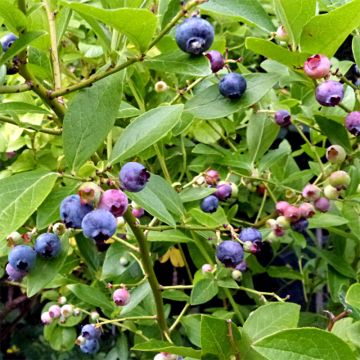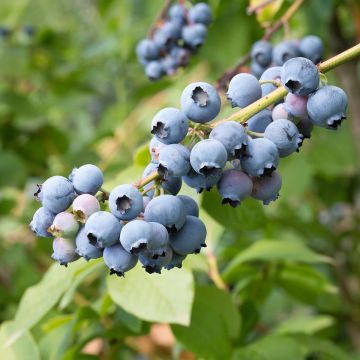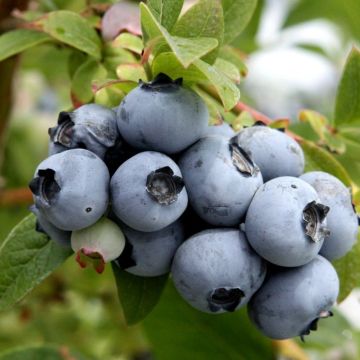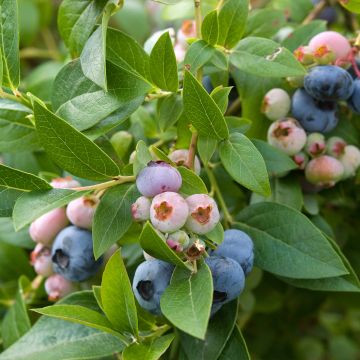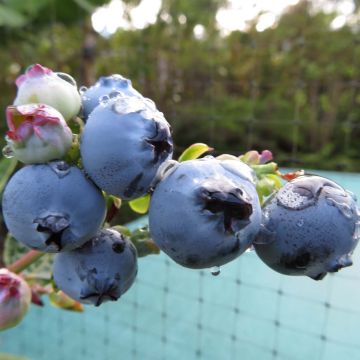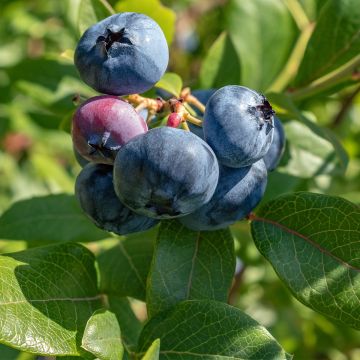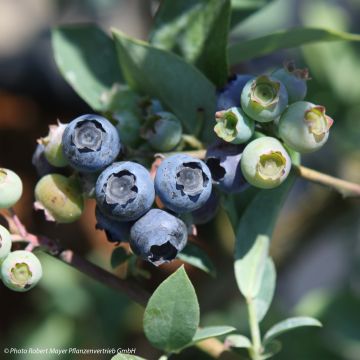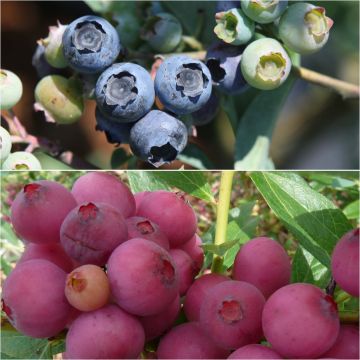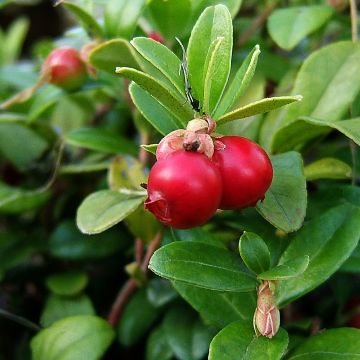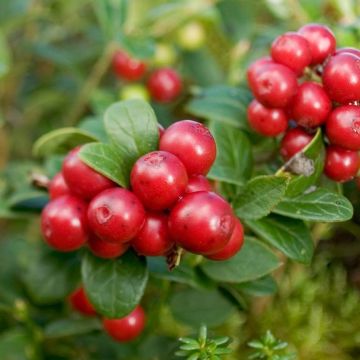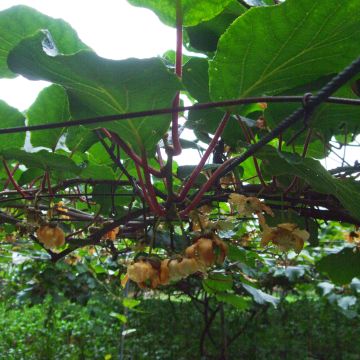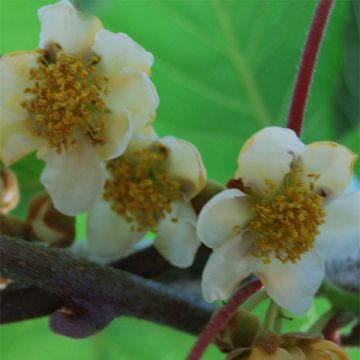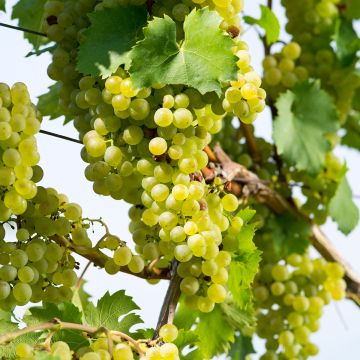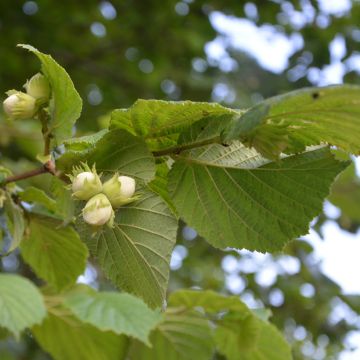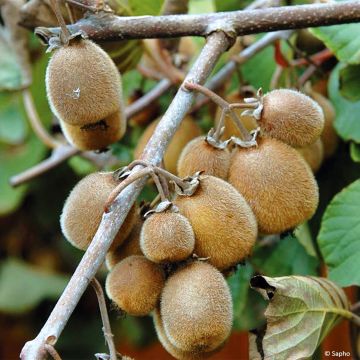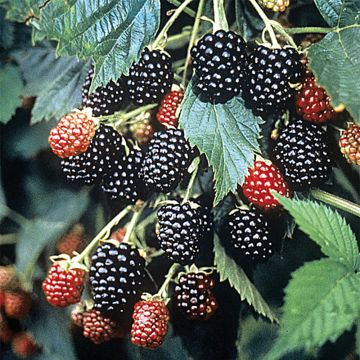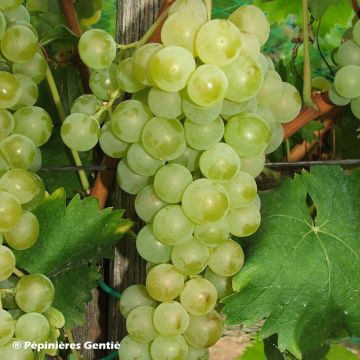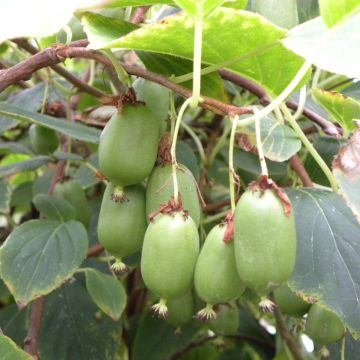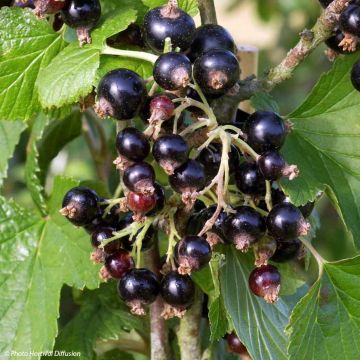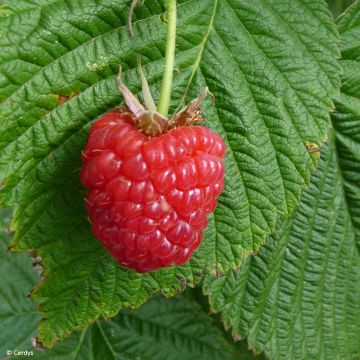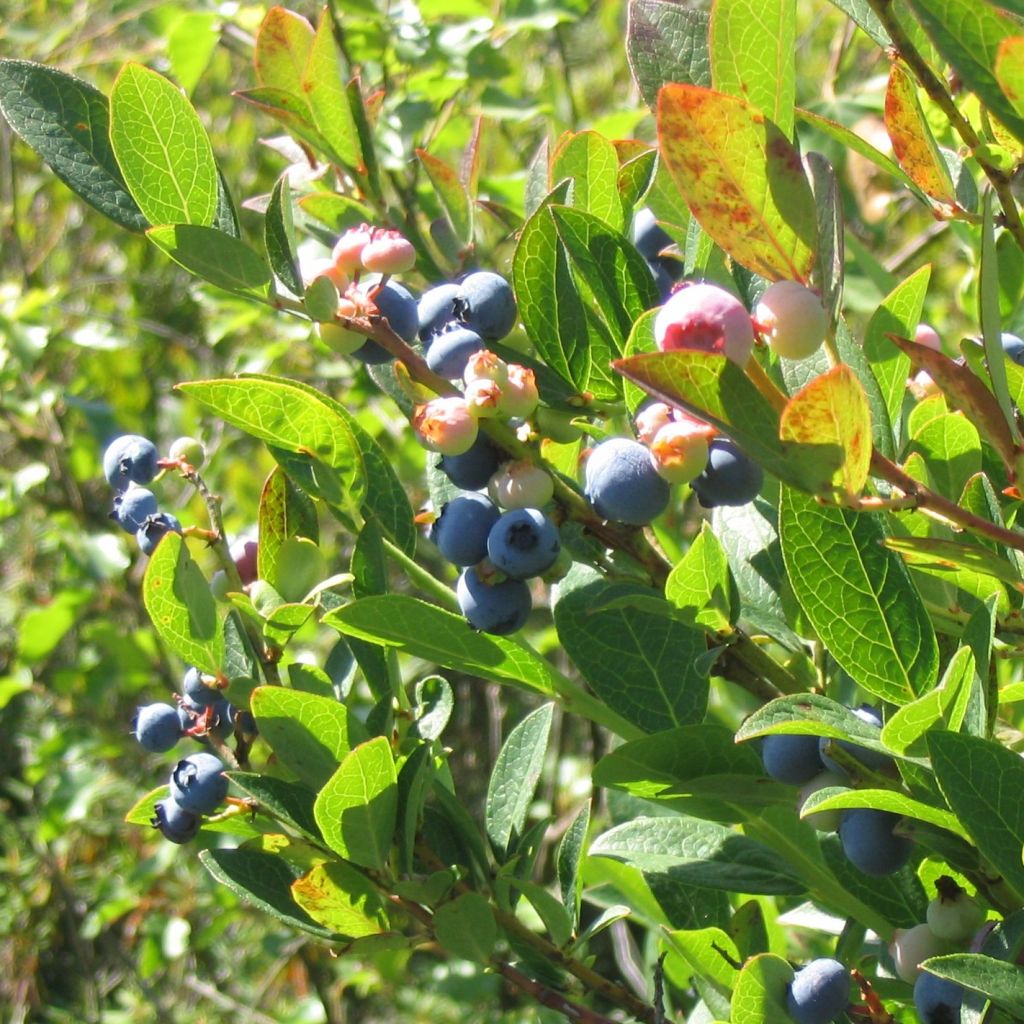

Myrtillier Reka® Bio
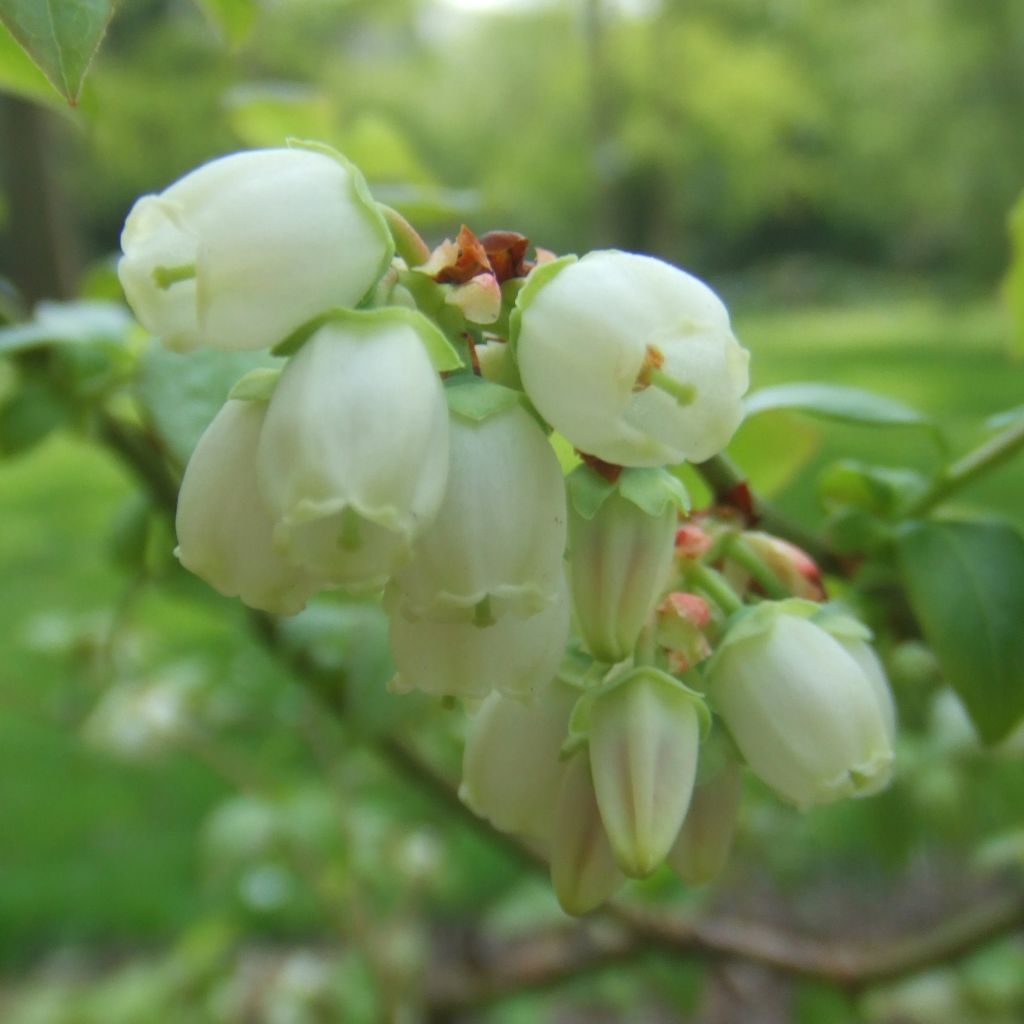

Myrtillier Reka® Bio
Vaccinium corymbosum Reka- Organic American Blueberry
Vaccinium corymbosum Reka®
American Blueberry, Highbush Blueberry
le plant a souffert pendant le transport. Son pot était fendu. Branches cassés. On pouvait constater que la motte du plant venait d'un tout petit godet qui a été placé dans un plus grand avec un remblayage de terre pour faire illusion. Nous sommes déçus.
Paul, 19/02/2021
This item cannot be shipped to the selected country
Delivery charge from €5.90
Delivery to Corse prohibited
More information
Schedule delivery date,
and select date in basket
This plant carries a 6 months recovery warranty
More information
We guarantee the quality of our plants for a full growing cycle, and will replace at our expense any plant that fails to recover under normal climatic and planting conditions.
From €5.90 for pickup delivery and €6.90 for home delivery
Express home delivery from €8.90.
Delivery to Corse prohibited: UE law prohibits the import of this plant from mainland France to Corse as part of the fight against Xylella fastidiosa. Please accept our sincere apologies.
More information

Description
This Organic American Blueberry Reka, known as Vaccinium corymbosum, is an early New Zealand variety, appreciated for its large blue-violet berries that contain sweet and juicy flesh with a subtle aroma. They often appear in tight clusters. The cultivated Blueberry is a bush that thrives in partial shade or non-scorching sunlight and requires acidic and moist soil, free from limestone. It is best planted in autumn but can be planted throughout the year, excluding freezing conditions. This Reka variety is harvested in July.
AB-certified plant from organic farming.
The Blueberry belongs to the Ericaceae family, like heathers and rhododendrons. There are two types:
- the wild blueberry (Vaccinium myrtillus), a small bush of about 30 cm (12in), that naturally grows in the undergrowth
- the highbush blueberry (Vaccinium corymbosum), native to North America, extremely cold-resistant, cultivated in gardens. It produces larger and more numerous fruits and can reach a height of 1.50 m.
The cultivated Blueberry (Vaccinium corymbosum) is a deciduous bush that is very hardy, forming a dense erect bush, reaching a height of 1.50 m (5ft) with a spread of 80 cm (32in). The leaves are 2 to 3 cm (1in) long, lanceolate, elliptical, entire and toothed, medium green, turning bright orange in autumn before falling. Flowering occurs in early May, in the form of small white bell-shaped flowers with slightly reddish edges, 0.5 to 1 cm (0in) long, clustered in pendulous clusters 2 to 5 cm (1 to 2in) long at the end of the stems. This is followed by large blue-violet berries, covered in bloom, slightly flattened and 1 cm (0in) in diameter.
They ripen in summer, with the first harvest appearing from the 2nd year of cultivation. On the same plant, the harvest will be staggered depending on the ripeness of the fruits. Blueberries are firm and sweet, with a pleasantly tart flavour. Blueberries are low in calories but highly nutritious: they are rich in vitamins A, B, and C, as well as calcium and iron. They can be eaten freshly picked, enjoyed as juice, jam, jelly, sorbet, or in pastries (pies, muffins...). Blueberries can be stored for about ten days after picking and can be frozen for longer preservation.
To ensure good pollination and fruiting, it is advisable to plant at least 2 to 3 Blueberry plants of the same variety or different varieties (including self-fertile varieties). In the garden, Blueberries will blend in perfectly in ericaceous beds, alongside rhododendrons, azaleas, hydrangeas, heathers...
Report an error about the product description
Vaccinium corymbosum Reka- Organic American Blueberry in pictures
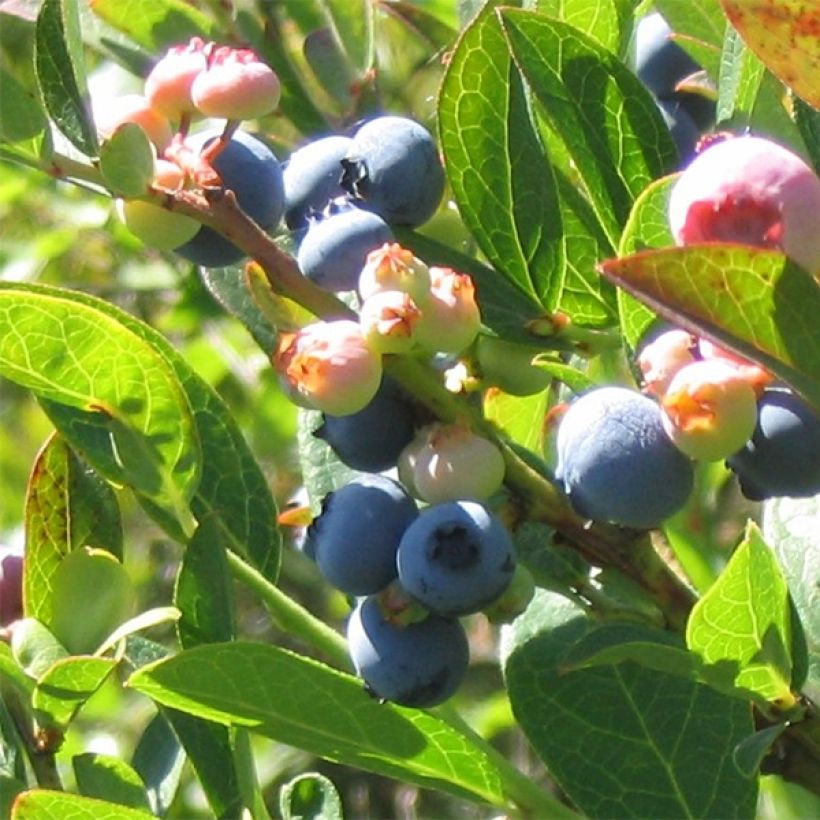

Plant habit
Fruit
Flowering
Foliage
Botanical data
Vaccinium
corymbosum
Reka®
Ericaceae
American Blueberry, Highbush Blueberry
Cultivar or hybrid
Other Blueberry bush
Planting and care
Planting the Blueberry bush is best done in autumn or any time of the year when there is no frost. This bush is planted in the sun in the north but preferably in partial shade in the south. Choose a sheltered spot. If you plant multiple plants, space them 1.20m (4ft) apart in all directions. The Blueberry bush is very hardy (-30°C (-22°F) for the plant but -5°C (23°F) for the flowers) and has a particularly long lifespan.
Plant it in acidic soil (pH between 4 and 5.5), incorporating ericaceous soil or a mixture of regular soil and organic matter, well-decomposed bark compost. The collar should be level with the ground. Firm and water thoroughly. In slightly chalky soil, dig a hole 50 to 60cm (20 to 24in) deep, line the edges with a garden felt, place a non-chalky gravel layer 10cm (4in) thick at the bottom, then fill it with an ericaceous mixture of soil.
The soil should remain moist but not waterlogged: the plant tolerates moderate drought and dislikes stagnant humidity. If watering is necessary, use non-chalky and non-chlorinated water (e.g. rainwater). Calcium inevitably causes the yellowing of the leaves around the veins, which remain green. In the long run, the bush withers. Mulch the base with shredded bark, straw, or fern leaves. It is sometimes useful to put a protective net if birds become too greedy during harvest. Annually in spring, apply a little well-rotted compost on the surface. The Blueberry bush is not very susceptible to diseases and pests.
Planting period
Intended location
Care
-
, onOrder confirmed
Reply from on Promesse de fleurs
Berries
Haven't found what you were looking for?
Hardiness is the lowest winter temperature a plant can endure without suffering serious damage or even dying. However, hardiness is affected by location (a sheltered area, such as a patio), protection (winter cover) and soil type (hardiness is improved by well-drained soil).

Photo Sharing Terms & Conditions
In order to encourage gardeners to interact and share their experiences, Promesse de fleurs offers various media enabling content to be uploaded onto its Site - in particular via the ‘Photo sharing’ module.
The User agrees to refrain from:
- Posting any content that is illegal, prejudicial, insulting, racist, inciteful to hatred, revisionist, contrary to public decency, that infringes on privacy or on the privacy rights of third parties, in particular the publicity rights of persons and goods, intellectual property rights, or the right to privacy.
- Submitting content on behalf of a third party;
- Impersonate the identity of a third party and/or publish any personal information about a third party;
In general, the User undertakes to refrain from any unethical behaviour.
All Content (in particular text, comments, files, images, photos, videos, creative works, etc.), which may be subject to property or intellectual property rights, image or other private rights, shall remain the property of the User, subject to the limited rights granted by the terms of the licence granted by Promesse de fleurs as stated below. Users are at liberty to publish or not to publish such Content on the Site, notably via the ‘Photo Sharing’ facility, and accept that this Content shall be made public and freely accessible, notably on the Internet.
Users further acknowledge, undertake to have ,and guarantee that they hold all necessary rights and permissions to publish such material on the Site, in particular with regard to the legislation in force pertaining to any privacy, property, intellectual property, image, or contractual rights, or rights of any other nature. By publishing such Content on the Site, Users acknowledge accepting full liability as publishers of the Content within the meaning of the law, and grant Promesse de fleurs, free of charge, an inclusive, worldwide licence for the said Content for the entire duration of its publication, including all reproduction, representation, up/downloading, displaying, performing, transmission, and storage rights.
Users also grant permission for their name to be linked to the Content and accept that this link may not always be made available.
By engaging in posting material, Users consent to their Content becoming automatically accessible on the Internet, in particular on other sites and/or blogs and/or web pages of the Promesse de fleurs site, including in particular social pages and the Promesse de fleurs catalogue.
Users may secure the removal of entrusted content free of charge by issuing a simple request via our contact form.
The flowering period indicated on our website applies to countries and regions located in USDA zone 8 (France, the United Kingdom, Ireland, the Netherlands, etc.)
It will vary according to where you live:
- In zones 9 to 10 (Italy, Spain, Greece, etc.), flowering will occur about 2 to 4 weeks earlier.
- In zones 6 to 7 (Germany, Poland, Slovenia, and lower mountainous regions), flowering will be delayed by 2 to 3 weeks.
- In zone 5 (Central Europe, Scandinavia), blooming will be delayed by 3 to 5 weeks.
In temperate climates, pruning of spring-flowering shrubs (forsythia, spireas, etc.) should be done just after flowering.
Pruning of summer-flowering shrubs (Indian Lilac, Perovskia, etc.) can be done in winter or spring.
In cold regions as well as with frost-sensitive plants, avoid pruning too early when severe frosts may still occur.
The planting period indicated on our website applies to countries and regions located in USDA zone 8 (France, United Kingdom, Ireland, Netherlands).
It will vary according to where you live:
- In Mediterranean zones (Marseille, Madrid, Milan, etc.), autumn and winter are the best planting periods.
- In continental zones (Strasbourg, Munich, Vienna, etc.), delay planting by 2 to 3 weeks in spring and bring it forward by 2 to 4 weeks in autumn.
- In mountainous regions (the Alps, Pyrenees, Carpathians, etc.), it is best to plant in late spring (May-June) or late summer (August-September).
The harvesting period indicated on our website applies to countries and regions in USDA zone 8 (France, England, Ireland, the Netherlands).
In colder areas (Scandinavia, Poland, Austria...) fruit and vegetable harvests are likely to be delayed by 3-4 weeks.
In warmer areas (Italy, Spain, Greece, etc.), harvesting will probably take place earlier, depending on weather conditions.
The sowing periods indicated on our website apply to countries and regions within USDA Zone 8 (France, UK, Ireland, Netherlands).
In colder areas (Scandinavia, Poland, Austria...), delay any outdoor sowing by 3-4 weeks, or sow under glass.
In warmer climes (Italy, Spain, Greece, etc.), bring outdoor sowing forward by a few weeks.

































